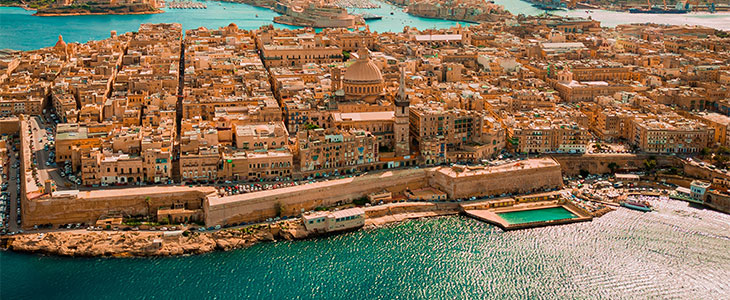Income tax in Malta

Capital city: Valletta
Currency: Euro (€) (EUR)
Population: 416,055
Language: Maltese and English
GDP: USD$18.4 billion
GDP per capita: USD$44,225
Malta is a Southern European island country consisting of an archipelago in the Mediterranean Sea (lying 80 km south of Italy). The smaller islands are uninhabited, with only Malta, Gozo and Comino (the three largest islands) being inhabited.
In 1814, Malta became part of the British Empire (via the Treaty of Paris) and was used as a shipping way-station and fleet headquarters. The opening of the Suez Canal in 1869 massively increased the shipping which entered the Malta port (as Malta was considered an essential stop on the way to India and was ideally located halfway between the Strait of Gibraltar and Egypt).
In 2017, a car bomb killed Maltese journalist Daphne Caruana Galizia, who had exposed Malta's links to offshore tax havens through the leaked Panama Papers. The Panama Papers were a cache of 11.5m documents leaked in May 2016 from the internal database of the world's fourth-largest offshore law firm, Mossack Fonseca. Caruana Galizia reported on the sale of Maltese passports, banks facilitating money laundering, and links between Malta's online gaming industry and the Mafia.
Maltese citizens are subject to personal income taxes on their worldwide income at rates between 0% to 35%. In contrast, foreigners who become a resident of Malta under the unique residence scheme are only taxed on their income derived from Malta. Their foreign-sourced income is exempt if it's not remitted to a Maltese bank account. Also, Malta has no inheritance tax, no gift tax, and no wealth tax.
"You’d be stupid not to try to cut your tax bill and those that don’t are stupid in business"
- Bono: U2




